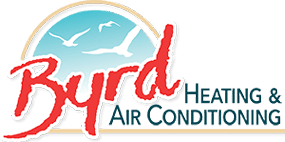Poor indoor air quality, or IAQ, in your Savannah, Georgia, home can lead to asthma attacks, allergies, flu-like symptoms, watery eyes, headaches, nosebleeds, fatigue, nausea, difficulty concentrating, and more health issues. Poor air quality could also increase your risk of cancer. To combat poor air quality, some DIY tactics, and professional services can help you breathe healthier inside your home.
Mold and Mildew
Some types of mold produce mycotoxins that can irritate the skin and airways and cause itchy eyes, sneezing, coughing, asthma attacks, and lung damage over time. Some people can be more sensitive to mold and mildew than others.
Mold and mildew usually grow in moist areas, such as water-damaged walls, ceilings, and insulation. But mold and mildew can also grow inside air ducts, especially during periods of high Georgia humidity. Stains on a ceiling or wall or a musty smell can be among some of the first signs of mold growth.
Other Air Quality Contaminants
Other indoor air pollutants such as dirt, dust, and pet dander can accumulate in your home over time and make allergies and other health problems worse. These pollutants can also keep your HVAC system from working efficiently.
Many household cleaners, air fresheners, and perfumes contain volatile organic compounds, VOCs. These chemicals evaporate at room temperature, and they can cause breathing difficulties or increase cancer risks. Formaldehyde is a common VOC that comes from the glues in particle board. Other products include acetone, toluene, xylene, and benzene.
Air Leaks in Insulation
Air leaks in your insulation increase your bills and bring in moisture that could encourage mold growth. Air leaks in the insulation also keep your air filters from working properly by letting in outside air. Check your insulation for leaks at least once per year.
Repairing leaks and adding more insulation can keep out pollen, dust, other contaminants, insects, and other pests. New insulation can also make your home quieter and more comfortable.
If your attic insulation is below your floor joists, make sure the material gets evenly distributed. Spray foam insulation is a good choice because the material expands to fill gaps, doesn’t settle over time, and isn’t vulnerable to water or pests. Some types of insulation, such as recycled cellulose fiber or fiberglass, can actually reduce air quality by emitting VOCs or particles that may cause lung damage.
Air Cleaners
Air cleaners can improve your indoor air quality using several methods. Electronic air cleaners trap the tiny particles that standard HVAC filters miss, while ultraviolet germicidal irradiation, UVGI units, kill mold spores, bacteria, and viruses. You can buy an inexpensive portable unit or have a whole-house unit installed by a professional. Whole-house units clean the air in your home as the air passes through your ductwork.
Ventilation
A good ventilation system reduces condensation and helps prevent mold. Keep furniture away from vents and open a window occasionally for the best performance. Use the exhaust fans in your kitchen and bathroom to remove moisture and unpleasant odors. You should also make sure your heating and air conditioning system is the correct size for your home.
Use mechanical ventilators to introduce more fresh air as well. A balanced ventilation system brings in fresh air and removes indoor air. These devices also have a heat exchanger that heats or cools fresh air, making these devices more efficient than fans.
Heating and Air Maintenance
You should have your heating and air conditioning system inspected at least once each year to keep the system working at peak efficiency. Regular maintenance reduces power bills, prevents expensive problems that could lower air quality, and helps your system last longer.
Check your filters at least once per month and change them when they get dirty. If you tend to forget about your filters, you can add an air filter monitor that measures air pressure differences and tells you exactly when to change your air filter. Some monitors can even send a reminder to your smartphone or tablet.
Byrd Heating and Air Conditioning has 30 years of experience in indoor air quality concerns. We offer 24-hour emergency service, convenient maintenance plans, and free estimates on system replacements. Contact us at 912-373-8447 for help with problems that affect indoor air quality. We install UV lamps, humidifiers, air cleaners, ventilators, and more; call us to find out how you can begin breathing better inside your home.
Image provided by Shutterstock




